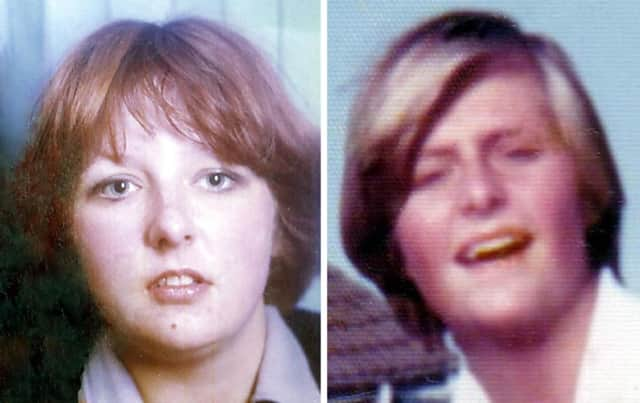World’s End trial: 1977 samples in good condition


Andrew Davidson, 46, said he believed scenes of crime work following the discovery of Christine Eadie and Helen Scott’s bodies had been well-handled.
Mr Davidson, a forensic scientist with 22 years’ experience, told how he carried out more than 18 months’ work on the samples – longer than he had ever spent on a case.
Advertisement
Hide AdAdvertisement
Hide AdHe is the last witness to give evidence for the prosecution in the trial of 69-year-old Angus Sinclair.
Christine and Helen, both 17, were last seen at the World’s End pub in Edinburgh on October 15 1977. Their bodies were discovered in East Lothian the following day.
Sinclair has been on trial at the High Court in Livingston for four weeks, where he denies raping and murdering the girls 37 years ago. He is accused of carrying out the attacks along with his late brother-in-law Gordon Hamilton.
Defence QC Ian Duguid said that, with one exception, where DNA matching Sinclair’s genetic material appeared on the items analysed, DNA matching Hamilton’s profile was also always present.
CONNECT WITH THE SCOTSMAN
• Subscribe to our daily newsletter (requires registration) and get the latest news, sport and business headlines delivered to your inbox every morning
One interpretation of that could be that “Hamilton is moving Sinclair’s DNA around at various places”, the lawyer said.
The witness agreed, when questioned, that such DNA transfer could have occurred at close proximity in the confined space of a caravanette.
The court has already heard how Sinclair claims he and Hamilton had consensual sexual intercourse with both girls in a caravanette in Holyrood Park, Edinburgh, before he went to East Lothian, where he left the girls unharmed.
Advertisement
Hide AdAdvertisement
Hide AdMr Davidson, who works for the Chorley-based organisation Cellmark, carried out DNA analysis on various items of clothing found on the bodies of the girls, including tights and belts used as ligatures to bind them.
He co-authored a report on the findings with his wife, forensic scientist Geraldine Davidson, the jury of nine women and six men was told.
Among the findings was the conclusion that DNA evidence provides “extremely strong support for the view that Gordon Hamilton and/or Angus Sinclair were involved in the restraining and strangling of both Helen Scott and Christine Eadie, rather than an unknown and undetected individual or individuals”.
SEE ALSO
SCOTSMAN TABLET AND IPHONE APPS